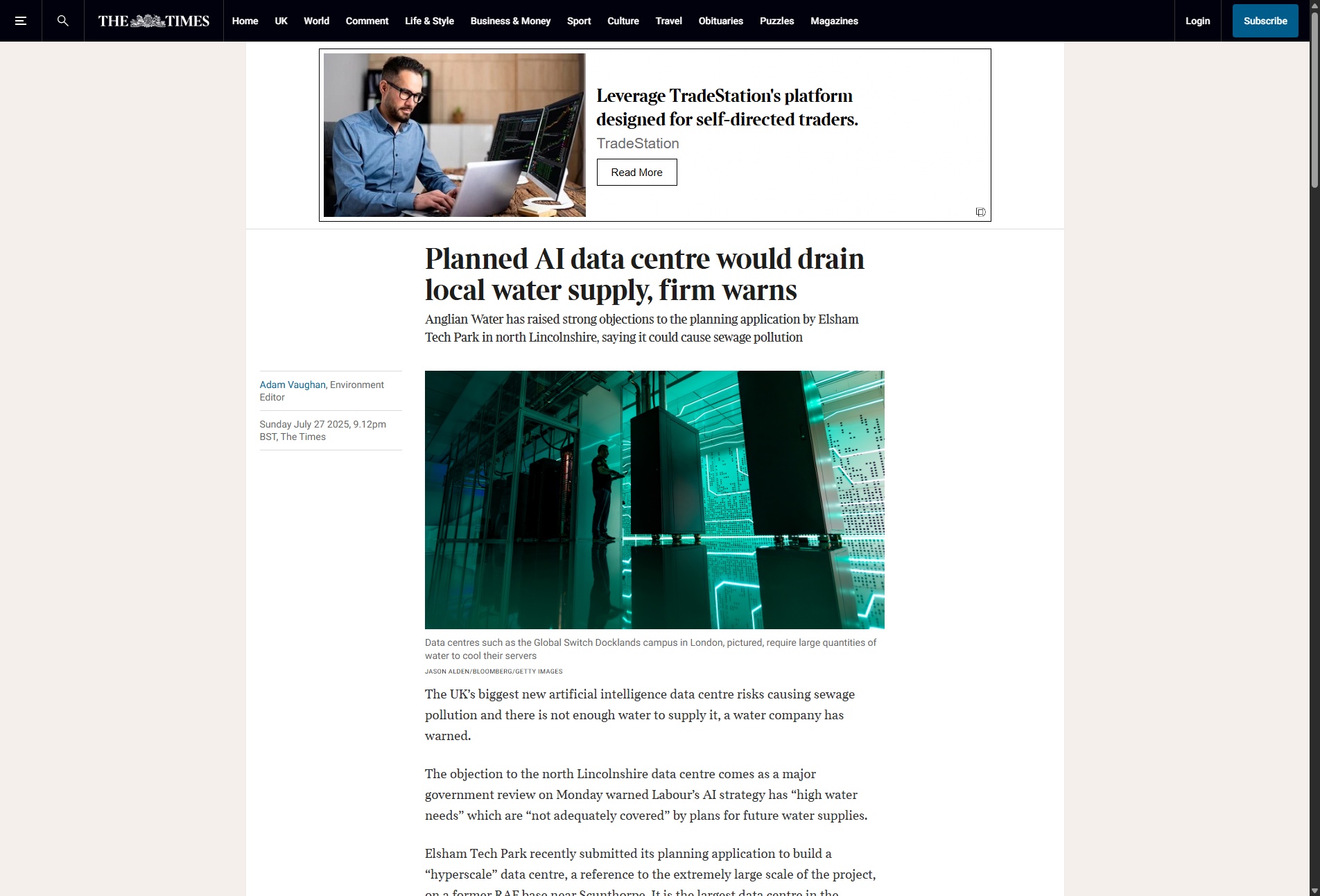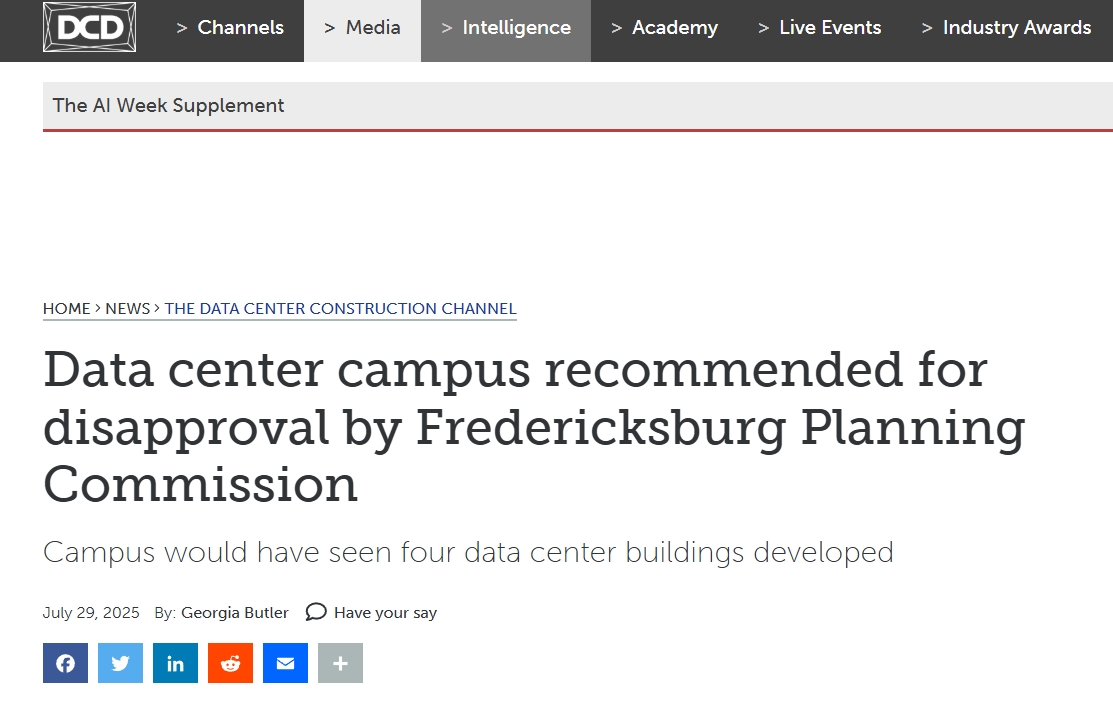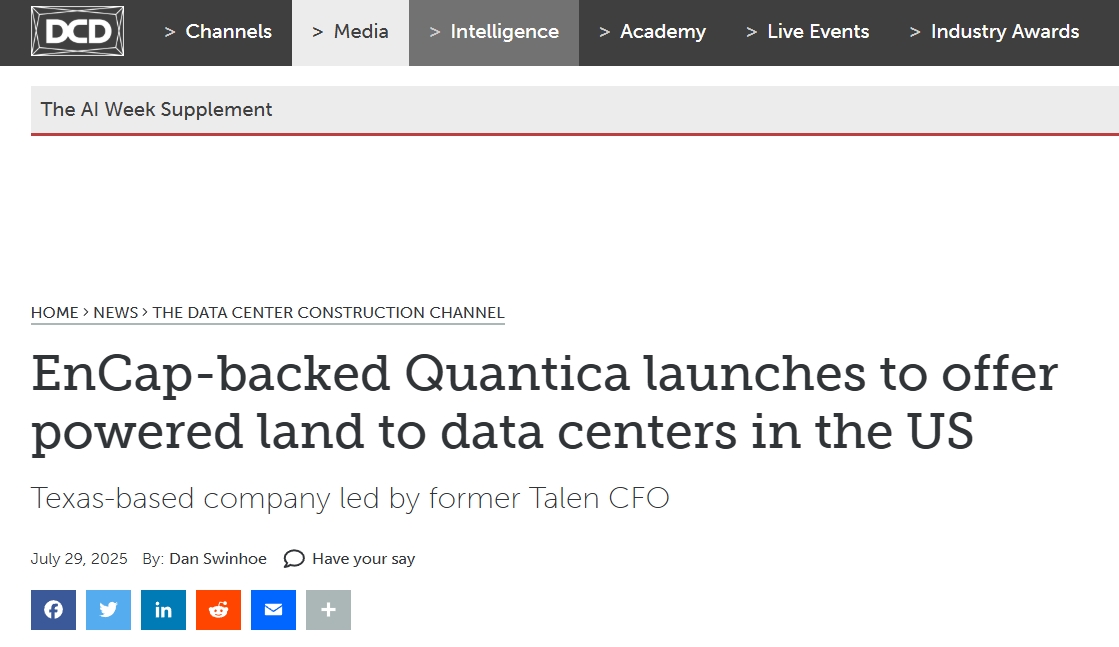Anglian Water has raised strong objections to the planning application by Elsham Tech Park in north Lincolnshire, saying it could cause sewage pollution.
The UK’s biggest new artificial intelligence data centre risks causing sewage pollution and there is not enough water to supply it, a water company has warned.
The objection to the north Lincolnshire data centre comes as a major government review on Monday warned Labour’s AI strategy has “high water needs” which are “not adequately covered” by plans for future water supplies.
Elsham Tech Park recently submitted its planning application to build a “hyperscale” data centre, a reference to the extremely large scale of the project, on a former RAF base near Scunthorpe. It is the largest data centre in the planning system and would require water to cool its servers.
However, in what is believed to be one of the strongest objections so far by a water company to a new data centre, Anglian Water has urged North Lincolnshire council to reject the scheme.
“We operate in the driest region of the country, and also the fastest-growing, so we’ve been actively working for decades to make sure we have a resilient water supply for generations to come,” a spokeswoman told The Times.
“A big part of this resilience to climate change is also making sure we enable industrial growth in our region, such as these data centres. Our primary concern is the ‘jaws of death’ facing potable water resources — essentially, there is no real need for sites such as data centres to be using clean, treated drinking water for cooling servers,” they said.
The “jaws of death” is a reference to the point where water demand outstrips supply because of population growth and climate change, as previously warned of by Sir James Bevan, the former boss of the Environment Agency.
Anglian has previously suggested cooling data centres with treated effluent from sewage treatment works, rather than potable water.
It is unclear from Elsham Tech Park’s planning application how much water the data centre would use.
Anglian said there was a significant difference in demand between less water-intensive businesses like warehouses, and more water-intensive businesses. In 2023, such high-use industries led to a 20 per cent increase in water demand in the region, compared to a forecast of 10 per cent, it said.
Anglian Water is also objecting on the grounds the data centre could overwhelm the sewer network and cause flooding and pollution incidents. “There are no sewers of an appropriate size for the development nearby — which may cause a risk of flooding,” the company said.
Nonetheless, the water firm said it was committed to working closely with data centres when they are granted planning permission, to try to ensure adequate water supply and sewage capacity.
Martha Dark, director of the technology campaign group Foxglove, said: “It’s not just the amount of foul water that would need to be treated out of Elsham, but supply to the new data centre itself. Anglian says it has a limit of 20,000 litres per day for non-domestic use. Its neighbour Thames, the biggest provider of water to data centres in the country, says hyperscalers use about 4 to 19 million litres of water per day.
“Those numbers obviously don’t add up, so it’s hard to see a situation where Anglian could supply Elsham without serious consequences for the rest of the region.”
She said the strength of the water firm’s objection “may be the first sign that the industry is waking up to the huge disruption these H2O-guzzling monsters could cause.”
The planning bid by Elsham Tech Park, which did not respond to requests for comment, said that surface water will be disposed of via a sustainable drainage system. It also said it will seek to achieve a “very good” rating for water efficiency.
A recent Times investigation found Britain’s data centres are using close to ten billion litres of water a year, with the true figure likely much higher.
On Monday, a government-ordered review of water regulation said there was not enough planning for growing water use from data centres. “Government’s artificial intelligence strategy and net zero strategy also have high water needs but there is a high degree of uncertainty, and they are not adequately covered in current water resource planning,” said the review by Sir Jon Cunliffe.








